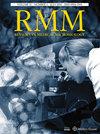幽门螺杆菌毒力因子表达影响胃肠道癌的表观遗传因素
Q3 Medicine
引用次数: 0
摘要
表观遗传机制中的ISSN破坏是癌症发生的原因之一;尤其是肠道。研究表明,在这一过程中,慢性炎症引起的多种遗传和表观遗传改变在癌症的发展中起着至关重要的作用。DNA甲基化损伤是在幽门螺杆菌增殖过程中引起的主要变化。许多肿瘤抑制基因受到相关启动子甲基化的调控,证明环境因素可诱发胃癌。幽门螺杆菌感染通过炎症、细胞凋亡的改变、上皮细胞的增殖和向致癌细胞的分化影响多种细胞。这是通过上皮细胞的细胞内途径发挥作用的,如丝裂原活化蛋白激酶、核因子kB、激活蛋白、Wnt/b-连环蛋白、磷酸肌苷3激酶途径、信号转导和转录激活因子。胞嘧啶甲基化自由基的积累破坏DNA;因此一氧化氮(NO)改变了dna甲基化酶的功能。因此,幽门螺杆菌感染引起的胃炎导致炎症并触发主要诱发胃肠道肿瘤的信号通路。值得注意的是,幽门螺杆菌诱导的microrna会产生表观遗传变化,影响免疫应答、自噬、细胞周期和细胞凋亡等多种过程。这些机制也刺激了胃癌的发展。值得注意的是,基因表达调控通过表观遗传机制,包括DNA甲基化和微rna包括主要的细胞通路调控。这些表观遗传改变为描述环境因素在基因组和细胞功能中通过幽门螺杆菌增强胃肠道癌中的作用提供了突出的候选者。威科集团版权所有版权所有。本文章由计算机程序翻译,如有差异,请以英文原文为准。
Helicobacter pylori virulence factors expression affect epigenetic factors leading to gastrointestinal carcinoma
ISSN Disruption in the epigenetic mechanisms is one of the causes of cancer; particularly in the gut. It has been elucidated that multiple genetic and epigenetic alterations during this process caused by chronic inflammation play a crucial role in the cancer progress. DNA methylation impairment as a leading change is caused during the proliferation of Helicobacter pylori. It has been unraveled that numerous tumor suppressor genes are regulated by related promoter methylation, justifying environmental factors inducing gastric carcinoma. H. pylori infection affects various cells through inflammation, changes in apoptosis, proliferation and differentiation of epithelial cells into oncogenic cells. This is exerted through intracellular pathways in epithelial cells such as mitogenactivated protein kinase, Nuclear factor kB, activator protein, Wnt/b-catenin, Phosphoinositide 3-kinase pathways, signal transducers and transcriptional activators. The accumulations of cytosine methylation free radicals damage the DNA; hence nitric oxide (NO) alters the DNA-methylating enzymes function. Accordingly, gastritis due to H. pylori infection results in the inflammation and triggers signaling pathways mostly inducing gastrointestinal cancer. Noticeably, H. pylori-induced microRNAs exert epigenetic changes influencing various processes most of which including immune responses, autophagy, cell cycle and apoptosis. These mechanisms also stimulate gastric cancer progress. It is noteworthy that gene expression regulation through epigenetic mechanisms, including DNA methylation and micro-RNAs include major cellular pathways regulators. These epigenetic alterations represent prominent candidates for describing environmental factors roles in the genomic and cellular function enhancing the gastrointestinal carcinoma by H. pylori. Copyright 2020 Wolters Kluwer Health, Inc. All rights reserved.
求助全文
通过发布文献求助,成功后即可免费获取论文全文。
去求助
来源期刊

Reviews in Medical Microbiology
生物-微生物学
CiteScore
1.80
自引率
0.00%
发文量
0
审稿时长
>12 weeks
期刊介绍:
Reviews in Medical Microbiology is a quarterly review journal which provides a balanced coverage of the whole field of medical microbiology. The Journal publishes state-of-the art reviews, mini-reviews, case presentations and original research from on-going research of the latest developments and techniques in medical microbiology, virology, mycology, parasitology, clinical microbiology, and hospital infection. In addition, PhD-Review - a platform for young researchers, and biographical Bio-Sketch articles are also considered. Reviews are concise, authoritative, and readable synthesis of the latest information on its subject, and references are limited to the fifty key sources for full reviews and twenty for mini-reviews. Reviews in Medical Microbiology is the perfect way for both qualified and trainee microbiologists, and researchers and clinicians with an interest in microbiology, to stay fully informed of the latest developments in medical microbiology. The journal is a valuable resource for educational and teaching purposes.
 求助内容:
求助内容: 应助结果提醒方式:
应助结果提醒方式:


